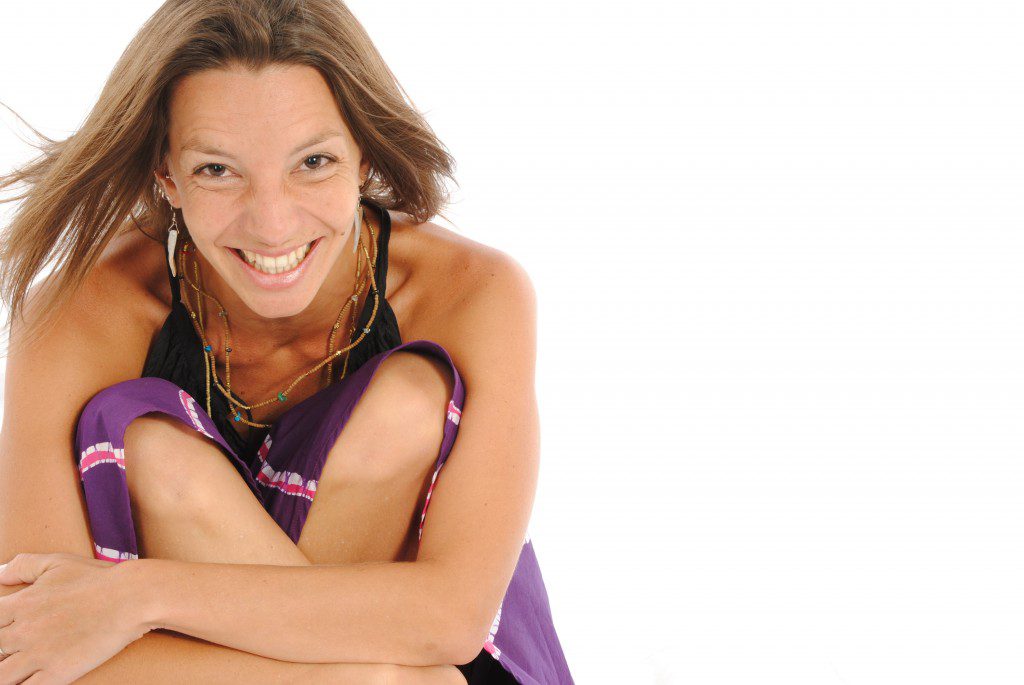 Tell me how you got started. I got started with peace work in 2007. I was looking for an experience abroad, outside of my home country of Brazil, working in the humanitarian field. As I’m a psychologist, I initially wanted something connected with mental health and my area of expertise. But it wasn’t easy without any previous international experience. Then I found Nonviolent Peaceforce (NP) through a Brazilian-Palestinian friend. NP accepts professionals from different fields and with diverse experiences. In the summer of 2007, I applied for NP, was accepted and then went for the training.
Tell me how you got started. I got started with peace work in 2007. I was looking for an experience abroad, outside of my home country of Brazil, working in the humanitarian field. As I’m a psychologist, I initially wanted something connected with mental health and my area of expertise. But it wasn’t easy without any previous international experience. Then I found Nonviolent Peaceforce (NP) through a Brazilian-Palestinian friend. NP accepts professionals from different fields and with diverse experiences. In the summer of 2007, I applied for NP, was accepted and then went for the training.
I really didn’t picture myself working on the subject of peace until it was the only way for me to get into the international arena. Through NP and partners I worked with later such as UNHCR and ICRC, I gained experience in civil protection, conflict resolution, conflict transformation—subjects I never formally learned about in my education. I’m a family therapist and I was trained in the systemic approach. Later through peace training and field work I found out that a lot of the conflict resolution paradigm is grounded in systemic theory. That helped me to not feel so far from my original field and how I see the world. But I also found the experience important for acquiring more skills and taking action based on them.
What I took out of it was learning more about the humanitarian world—the good and the bad. I can see that not everything is perfect. And working for peace is not just holding hands, lighting candles and singing around a fire. I learned a lot through the challenges I faced everyday which just reaffirmed that this was what I wanted to do.
After a year in Sri Lanka with Nonviolent Peaceforce, I knew that I kept the inner desire to work in conflict zones, but I really wanted an experience involving psychology, so I got a job in Congo in a mental health program. Since then, I’ve been working and supporting various projects. That makes me realize that everything is connected. Even when organizations might be working in an isolated way, there is always the foundation of a community that is/was in conflict and that affects the mental health of the whole community somehow.
In facilitating and reflecting about trainings with my partner, Robert, I realized that no matter which training humanitarian and peace workers take, it can’t only be focused on the ‘intellectual’ skills. These people also need psychological preparation in order to be able to hold the trauma they will inevitably face in their work field.
What interests you most about what you’re doing now? After 5 years of peace work, I’m excited that I’m more capable of seeing things as a bigger picture. Having worked in civilian protection and psychological trauma, I can see how they all relate and how I can offer this experience and knowledge to others.
What’s been your biggest accomplishment? Being able to be fully present. And to be able to acknowledge that I gave something that was important –no matter how big or small – to the communities I worked with, knowing that I made a difference in their reality somehow. Each time I was with each person, I took something that changed my life and added to my inner growth. And I let it happen. I learned to give and receive gracefully and gratefully.
Biggest challenge? I had two big challenges over the last 5 years. First in Sri Lanka, on my first mission with NP, my biggest challenge there was to face the reality of management. Managing human beings is one of the hardest things in my opinion. One of our colleagues and I had a disagreement on how I was dealing with something. For over a month, we had a hard time. It was a challenge for me to keep the rest of the group strong and integrated while trusting in what I was doing, not losing my vision and rebuilding that relationship.
The second challenge was getting really sick in Africa and reaching the point of making the important but hard decision to leave the mission. I had to learn how to choose and deal with the boundary of self-care and care for others.
Who or what inspires you? I think people that have the courage to face challenges and risks. They really inspire me. Nature inspires me. The strength of a community. Seeing people who care for each other.
Why is peace sexy to you? What does “Peace is Sexy” evoke for you? It’s about exploration. People who have the guts to do something. Those people become super sexy. Peace is sexy because integrating peace makes you attractive.
What is a simple thing you do to create peace? What is something you do everyday? I try to acknowledge people, whoever I cross by saying hi, smiling to everyone. In Missoula, Montana, where I am living now, everyone says hello and I think it’s a genuine courtesy that makes me feel at peace and I like that a lot.
How would you like Peace is Sexy to make a difference in what you are up to? If I think of Peace Is Sexy as a space, as your work, I really want to work actively together so that we can create or exchange the vibration we are creating here and bring up your vibration. I want people to become sexy.
Where would you like to see your passion go in the next 10 years? 20 years? 100 years? I think I want my passion to go in as many directions as possible. I really want to pass on my knowledge and experience to the next generation.
Is there anything else you want to tell us? I’ve always had the idea to create a peace center that would teach a more integrative approach. That idea was always in my thoughts and heart. When I met Robert, my partner, I found out that he wanted to do that as well. When we were trying to figure out how to finance it, Robert came up with the idea of a brewery. A friend of mine in Brazil started a pub 11 years ago and we were always amazed at how much “therapy” she would do at the bar, just by being there for everyone that would show up. She also told us about all the connections and sense of community that come out from people just being in the pub together. Just by sharing a drink in a bar, I know it can be a space for personal transformation. That’s how I see the business idea that Robert and I are developing: creating a positive social training center funded by a microbrewery.
We’ve already raised over $60,000 since November last year and now we are going through our final campaign, which is online so we can reach all out to a network of good people doing good things around the globe.
Check out our IndieGogo Campaign for the Big Medicine Brewing Company and Center for Positive Change. We’d love to have people from around the world participating in our dream!

